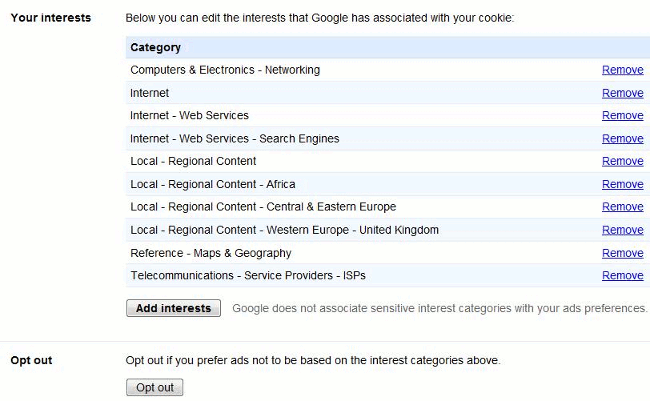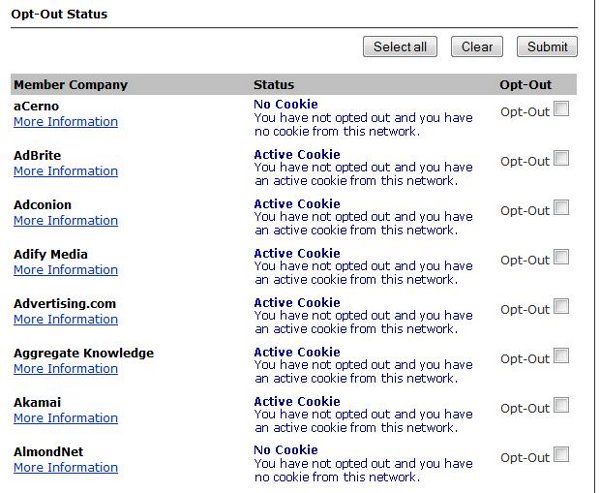You may find advertisements on search results pages irritating but the search engines go to a lot of trouble to ensure that the ads you are exposed to match the content of your search and the sites that you select. Google stores this information in your ad preferences and allows you to view and edit them. You think you don’t have any just because you don’t click on ad? Then check out http://www.google.com/ads/preferences/.
It does not matter whether or not you are logged in to your Google account because the information is stored in cookies associated with your browser. If you use more than one browser, each will have their own set of preferences that have to be viewed from within the browser. This has implications if you conduct confidential research and others have access to your computer. You might be deleting your search history but it is still possible to get a general idea of what areas you are working on. Your ad preferences also affect advertisements that Google shows on other websites for which it provides advertisements, for example YouTube, news sites and blogs.
You can remove or add an interest category, or opt out altogether from Google’s targeted advertising. My Firefox ad preferences mostly reflect the type of research I carry out, although I was puzzled by the inclusion of Local -Regional Content – Africa.

To opt out of behavioural or targetted advertising run by other services the Network Advertising Initiative at http://www.networkadvertising.org/ lists about 50 members and allows you to opt-out of all or a selection. The list will also inform you whether or not you currently have an active cookie from that service. When I looked at my listing there were about fifteen I had never heard of and amazed that I had active cookies on nearly all of them. This is big business!

NAI member companies set a minimum lifespan of five years for their opt out cookies but if your browser is set to automatically clear cookies after a certain time period you will have to go through the opt-out procedure again. Note that opting-out does not mean that adverts will no longer be displayed, it just means that they will not match what Google and other services believe are your interests.
Google obviously does this to maximise income from adwords but this means over time the customer will only see the same sites which cannot be in their best interest. Also most people will have no idea this is going on and feel this is an intrusion too far